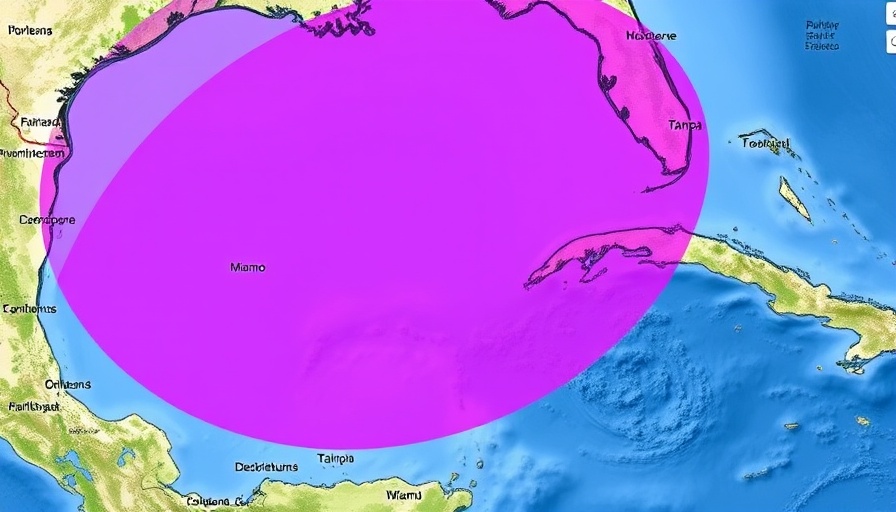
Tropical Storm Predictions: What to Expect in the Gulf
As summer settles into the Southern U.S., the air in the Gulf of Mexico grows increasingly warm and humid, creating prime conditions for tropical developments. A long-range forecast from the Climate Prediction Center highlights a significant area in the Gulf that could see tropical formation within the next 7 to 14 days. While precise forecasts can be challenging, historical patterns suggest that considerable storm activity can emerge at this time of year, making vigilance essential for residents and businesses alike.
Climate Conditions Creating Potential
The Gulf's current climate conditions are perfect for tropical storm formation. Sea surface temperatures are rising, and moisture levels are increasing as warm, humid air flows over the region. The presence of the Bermuda High—an area of high pressure—creates a favorable atmospheric environment for storms. This high tends to steer tropical systems toward the U.S. East Coast, raising concerns for those living along the Gulf.
Understanding Tropical Formation
Tropical systems are formed when warm, moist air rises from warm ocean waters, creating low pressure at the surface. This process draws in cooler, drier air from the surrounding areas, contributing to storm development. Once a storm reaches sustained winds of 39 miles per hour, it becomes a tropical depression, and if it strengthens to 74 miles per hour, it is classified as a hurricane.
Historical Context: Storms of the Past
Historically, the Gulf Coast has a reputation for experiencing intense tropical storms and hurricanes during late summer and early fall. For instance, Hurricane Katrina in 2005 serves as a stark reminder of the potential devastation that can arise from such systems. Preparedness and respect for these weather patterns are crucial for communities vulnerable to storm damage.
What Residents Should Do Now
Residents should begin to prepare for the possibility of increased storm activity by ensuring emergency kits are stocked up, reviewing evacuation plans, and keeping up to date with local news channels for the latest forecasts. Even if the predictions do not materialize into a significant storm event, understanding the potential impact on weather patterns can inform decisions during this unpredictable season.
Future Predictions: A Season to Watch
As we move further into the hurricane season, meteorologists urge caution. With the National Hurricane Center indicating calm waters in the near future, predictions emphasize that the dynamic weather patterns will likely evolve. Early preparations could potentially save lives and property, as Gulf residents brace themselves for what could be an active hurricane season.
To stay informed on tropical developments, it’s vital to monitor local forecasts regularly and heed any warnings issued by meteorological agencies. Keeping lines of communication open with family and community members can further contribute to effective planning and preparedness.
 Add Row
Add Row  Add
Add 




Write A Comment